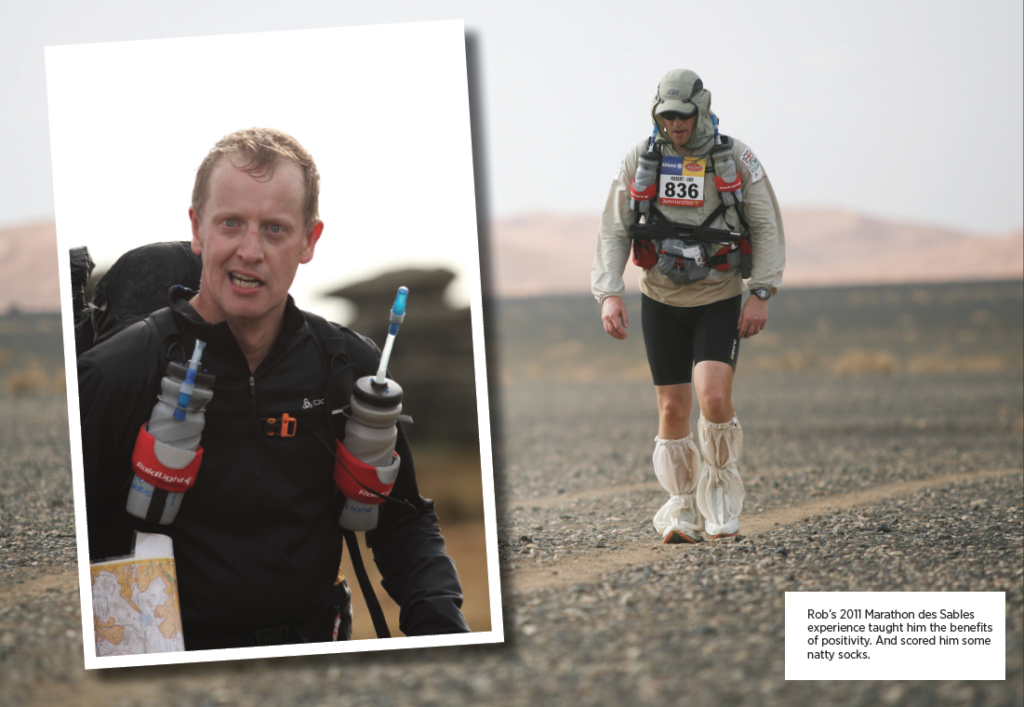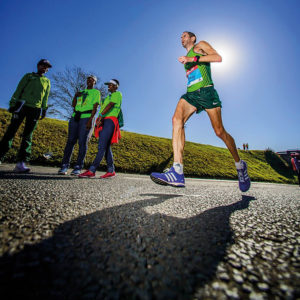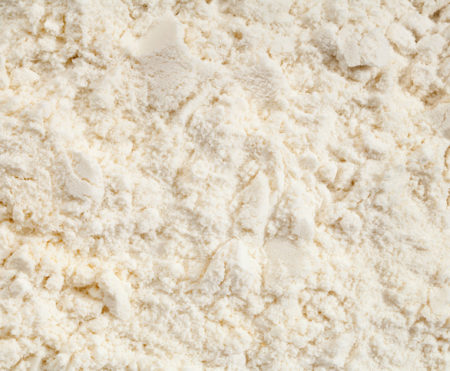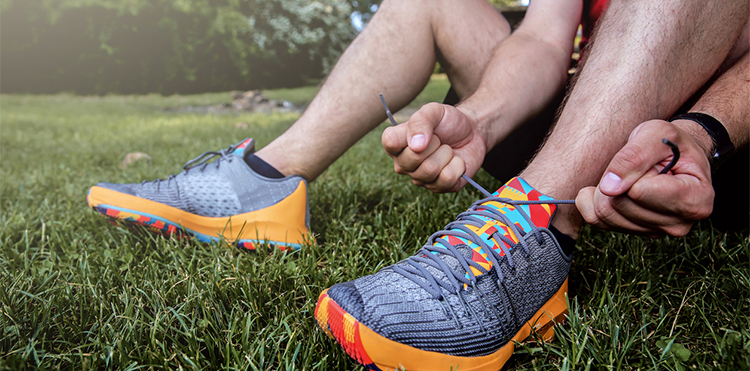
There is a moment you sometimes reach during a run when everything seems to flow. You might be several miles into a long, Sunday run, a few reps into a speed session or deep into a race. Suddenly, you realise you are cantering along feeling strong, positive and pretty much unstoppable.
If you can identify with these feelings, you know what it’s like to experience the phenomenon known as the runner’s high. Studies have proven that the act of running helps to release endorphins, chemicals that promote this million-dollar feeling by reducing your perception of pain and triggering those waves of positivity.
For some people, that’s reason enough to run. As well as feeling great during their run, it can help them build and maintain a positive outlook in other areas of their life. It is also the reason running and other forms of physical exercise are championed, if still somewhat underused, as a means of alleviating depression. The reasons for depression can be many, and for men it can be hard to express how or why they feel so low. Be honest – when was the last time you opened up to a mate, or even a family member, about your feelings?
Serving soldier Rob Shenton (runningrob.com) felt signs of depression a few years ago. “I had a history of depression,” he explains. “It was built up by high levels of stress. Everyone experiences lows and sadness, but it’s when that low doesn’t go away and you realise you’re feeling morose most of the time.
“There were times I couldn’t stand being in crowds or interacting. I would avoid those situations, because I was irritable. Just little things would make me angry and people would be treading on eggshells around me.
“I had some therapy and it all worked really well. I learnt that your body needs three things to function: food, physical activity and sleep, and you have to get the balance right. I strongly believe in that. If you’re suffering from work pressures or any pressures from different aspects of your life, it’s amazing how much of an effect they can have on you.”
Return from duty
Shenton then went to Afghanistan in 2008, but returned early after his father was diagnosed with lung cancer. Going straight from operations to home was hard to deal with and a couple of months after his return he noticed things weren’t right.
“I was diagnosed with mild post-traumatic stress disorder (PTSD), which more or less solved itself with bit of therapy,” he says. “The military are on the ball with helping you deal with these issues and in a way I’m lucky I serve in the military. My treatment was almost a refresher of what had happened in the early 2000s – things had been getting on top of me and I hadn’t paid attention to the three basics of food, ‘phys’ and sleep. It was just like it put me back online.”
In 2008 he decided to take up running. “I was home, my father had cancer and it felt like there was nothing I could do to help solve it,” he recalls. “Going out for a run was a release from what was happening. Speaking to other people who have had mental illness issues as well, running seems to be a main thread, especially with other military guys.”
Shenton’s introduction to running turned from a pressure release to a love for ultra distances, and ultra-tough events. In 2011 he ran the Marathon des Sables, which taught him more than just how to endure the world’s toughest foot race.

“You do that race as an individual but there is a whole team helping you: physios, foot care specialists, doctors. I discovered the people in my team, people I had never met before, were all very positive and that had a massive effect on me.
“If you’re positive in your outlook, that has an effect on people around you. I found that really useful. I also realised I was beating myself up mentally because I was not good at certain things, and as soon as you let go of the things you know you’re not good at – I’m not good a report writing, but I like dealing with people, for example – it makes you feel better, because you think ‘I can do this’ and it gives you more self esteem.”
Now, alongside his treatment, he also has his ultrarunning experiences. “Someone said to me, ‘You can run any distance and you’ll get to a certain point where you think you can’t go on anymore, and you’ll fight an internal battle with yourself in your mind. At that point, you should always look back and think of the distance you’ve travelled, not the distance you have to do.’
“I think that’s true for life as well. I look back at what I have achieved, such as completing the MdS, and I can use it as a reference point for when things get tough. Doing the MdS is something you can be proud of and is something for me to look back on when I approach the next round of tough running events I want to do.
“If it wasn’t for running and for my friends and for the things I’ve learnt, I probably wouldn’t be in this position today.”






